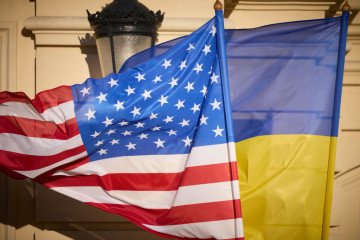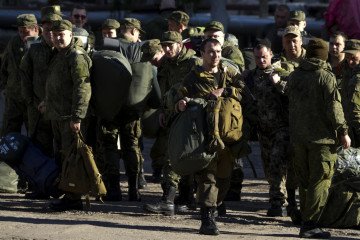- Category
- Latest news
Russia May Face New Mobilization Due to Troop Shortages Amid Kursk Incursion, Bloomberg Says
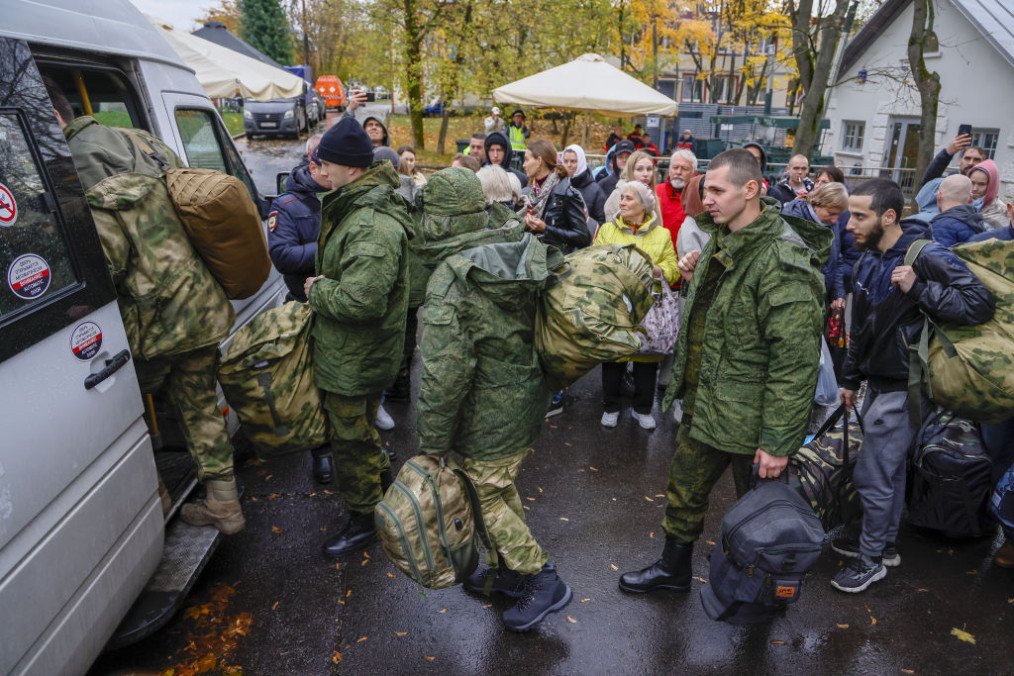
A growing shortage of soldiers for its war in Ukraine is pushing Russia to increase recruitment bonuses, aiming to avoid a repeat of last year’s unpopular mobilization. However, there is little evidence that this strategy is succeeding, according to the Bloomberg report.
According to three sources close to the Kremlin and the Russian Defense Ministry, who requested anonymity due to the sensitive nature of the issue, on average, regional officials are failing to meet more than a third of their recruitment targets, according to Bloomberg’s source familiar with the situation.
Ukraine’s incursion into Russia’s Kursk Region, which met with little resistance, highlighted the challenges Russia faces as the war enters its third year. Ukrainian forces now control 1,000 square kilometers (386 square miles) of Russian territory, with offensive operations continuing, as reported by Ukraine’s army Chief to President Volodymyr Zelenskyy on August 12.
This shortfall may force Russia to consider another mobilization, with two sources indicating that officials might present it as a measure to rotate and rest frontline troops. One of these sources suggested that a draft could be ordered as soon as the end of this year.
Bloomberg Economics Russia economist Alex Isakov noted that Putin needs “around 500,000 people in the next 12 months to offset attrition and rotate his troops deployed in Ukraine.” Isakov added that “Russia’s current recruitment strategy, which relies on paying above-market wages to volunteers, will be inadequate to achieve this. Instead, the government is likely to switch its focus to conscripts.”
The failure to repel the Ukrainian attack and restore control of its border has exacerbated the Kremlin’s recruitment drive, leading to a sharp increase in payments from both federal and regional authorities to incentivize more people to join the army. The pressure to meet quotas is so intense that wealthier regions are recruiting individuals from poorer areas to qualify for larger bonuses.
According to Bloomberg sources, the scale of Russian losses and inadequate replacement rates are making it increasingly difficult to maintain the current strategy of slow, grinding advances in Ukraine. There is no longer any discussion about capturing Kyiv and other major cities because Russia simply doesn’t have the manpower.
Russian authorities are pushing financial incentives to new extremes as recruitment numbers decline. In July, Moscow Mayor Sergei Sobyanin promised to pay 1.9 million rubles ($22,000) to volunteers who sign military contracts, in addition to the 600,000 rubles already paid annually in monthly installments by the city government to supplement wages and bonuses from the Defense Ministry.
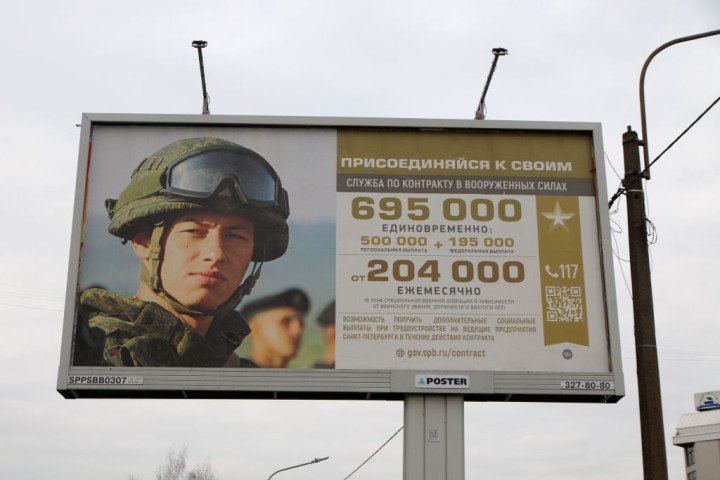
In total, new recruits could earn 5.2 million rubles in their first year, assuming they survive, which is about three times the average annual salary in the capital last year, according to the mayor.
The military’s demand for manpower has intensified a growing salary race with businesses, as labor shortages worsen in Russia’s overheating economy. This pressure is increasing as bonus payments escalate in an effort to attract more men to enlist.
Russia has announced plans to expand its armed forces to 1.5 million personnel from the current 1.15 million. Former Defense Minister Sergei Shoigu stated in December that 650,000 soldiers have gained combat experience in Ukraine.
In contrast, Zelenskyy said in January that Kyiv’s forces numbered just under 900,000. Facing its own manpower challenges, Ukraine introduced a new law in May lowering the conscription age to 25 from 27 and narrowing exemptions from service, as tens of billions of dollars of fresh military aid began flowing from its US and European allies.
In a July interview with Bloomberg News, Zelenskyy stated that Ukraine’s forces were better positioned in terms of manpower than they had been months ago. Preparing for a new counteroffensive against Russia was now a matter of arming its brigades, he said.
Previously, Western estimates suggested Russian casualties could be as high as 500,000 in total. The UK Ministry of Defence reported on August 3 that the past three months had been the deadliest for Russia in terms of casualties since the war began.
-ba02b3bc86f0b624f99115809a6a34d0.jpg)
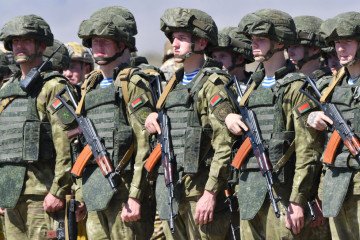
-72b63a4e0c8c475ad81fe3eed3f63729.jpeg)
